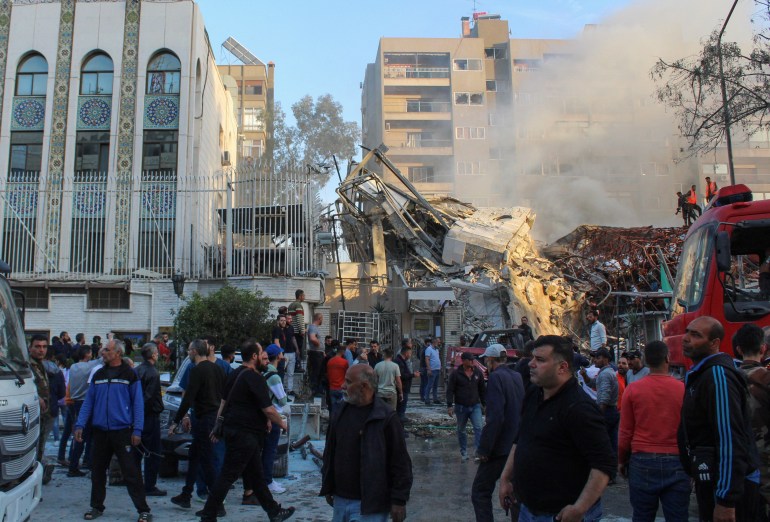What countries has Israel attacked since October 7? | Israel-Palestine conflict News
As Israel’s war on Gaza pushes on in its 10th month, fears of regional escalation are growing, with attacks in Lebanon and the killing of Hamas’s political chief Ismail Haniyeh in recent days.
Haniyeh was assassinated in the early hours of Wednesday in Iran’s capital, Tehran, according to a statement from Palestinian group Hamas, which blamed Israel for his death.
It comes less than 24 hours after at least three people were killed and 74 wounded in an Israeli strike in Beirut. Among those killed was senior Hezbollah commander Fuad Shukr.

Since October 7, Israel has been responsible for more than 17,000 attacks in the Middle East.
Where has Israel attacked in the Middle East?
According to an analysis of data from the Armed Conflict Location and Event Data Project (ACLED), Israel is responsible for 17,081 incidents of air/drone strikes, shelling/missile attacks, remote explosives and property destruction, in five countries — Lebanon, Syria, Yemen, Iran and the occupied Palestinian territories — since October 7.
The majority of attacks have been on Palestinian territory, specifically the Gaza Strip, with 10,389 incidents accounting for more than 60 percent of total attacks.
Israel conducted 6,544 number of attacks on Lebanon (38 percent), followed by Syria with 144 incidents recorded.
Cross-border attacks in Lebanon
Since October 8, when Hezbollah launched attacks on Israel in a show of solidarity with the Palestinian people, Israel has attacked it nearly four times as much, with more than 6,544 attacks along the 120km (75-mile) border and further north of the country, killing more than 590 people.
The latest attack in Lebanon on Tuesday was described by the Israeli military as a “precision strike” on Shukr, in a southern suburb of Beirut.

Three civilians were killed and 74 wounded in the attack, Lebanon officials say.
Israeli officials say it was a response to an attack on the Israeli-occupied Golan Heights on Saturday that killed 12 children and young people. Hezbollah has denied responsibility for that attack.
Attack on Syria
Israel is responsible for more than 144 armed incidents in Syria since October 7, killing more than 260 people.
It has significantly increased the frequency and intensity of its attacks since the start of its war on Gaza, targeting Iran and its ally Hezbollah in Syria, especially around the capital, Damascus.
In April, Israeli fighter jets flattened the Iranian consulate building in Syria’s capital Damascus, killing seven members of Iran’s Islamic Revolutionary Guard Corps (IRGC), including two generals who led the elite Quds Force in Syria and Lebanon.

Just days before the attack on the Iranian consulate, the Israeli military had launched massive strikes on Syria’s northern province of Aleppo, killing at least 40 people, most of them soldiers.
Attacks on Iran
In April, Iran’s air defence systems were deployed in multiple parts of the country after reports of explosions near the airport in Isfahan province, after escalating tensions with Israel, following the latter’s attack on the Iranian consulate building on April 1.

Iran’s Fars News Agency said “three explosions” were heard near Qahjavarestan city in Isfahan province, close to the province’s airport and an army airbase. Isfahan, located in the centre of Iran, hosts the country’s uranium conversion facility in the southeastern Zerdenjan area. Additionally, the Natanz uranium enrichment site is also located within the province.
US media reported that senior American officials had told them Israeli missiles had hit an Iranian site.
Attack on Yemen
Last month, the Israeli military struck Yemen’s Red Sea port city of Hodeidah in response to attacks by the Houthi group, killing six people.
The Israeli air raids were carried out a day after the Houthis claimed responsibility for a drone attack on Eilat port in southern Israel which killed one person in Tel Aviv and injured 10 others.
The Israeli air strikes were the first known direct attack by Israel against the Houthis since the start of the war on Gaza.

